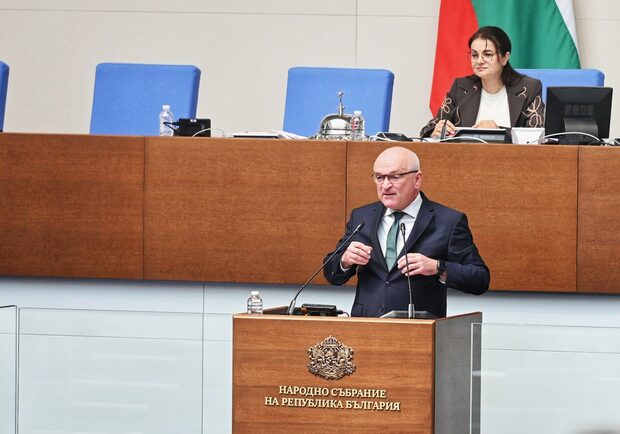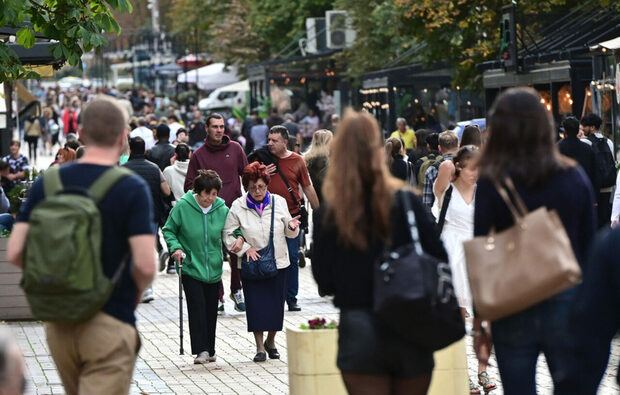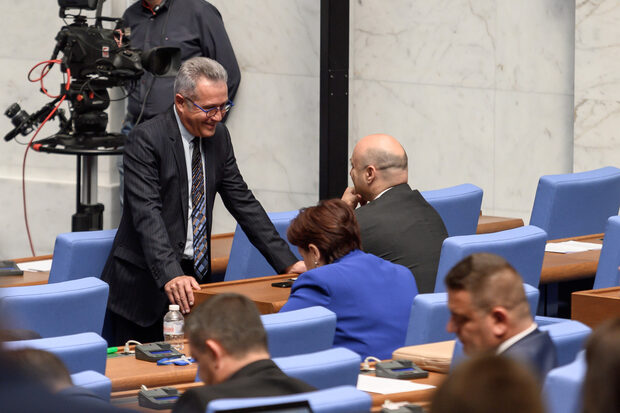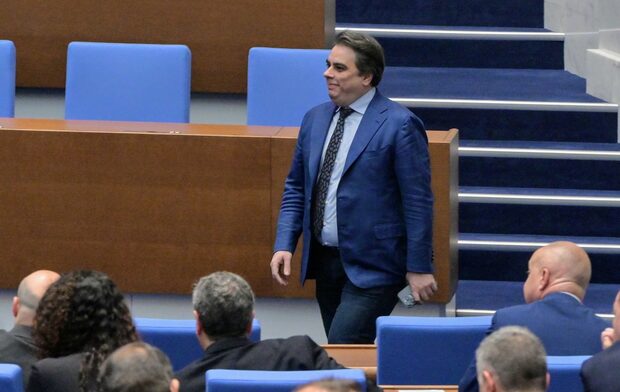4%. That's the portion of money from the European Union's various programs that has entered the economy in the past two years. Only 4% of almost 25 bln euro, earmarked for Bulgaria for 2021-2027, have reached their final recipient. And that includes the famous Recovery and Resilience Plan (RRP), which everyone has been proclaiming - the actual spending there amounts to 3%.
As someone who's been deeply involved in EU funding and spending on a local level for well over a decade now, I can tell you that a slow beginning is the rule of thumb. Most of the institutions need fine tuning, most of the programs don't hit the ground running, and the documentation gets worse and worse. And all of that is even before we consider the political turbulence which makes the administration freeze.
Yet something is profoundly different this time.
For starters, there is nothing of the previous fervor and eagerness to start spending. The biggest regional program is still mulling priorities and looks ages away from spending actual money. The new business-education-innovation program is at under 2% and the same with the Environment program.
And then we get to the RRP which, Capital concluded this week, the Bulgarian authorities are planning to dump completely. 4 out of the almost 60 milestones that it needed to reach, are going nowhere: the personal bankruptcy, the rules for the new Corruption committee, the whistleblowers' protection and the Climate roadmap. What's more, Parliament has postponed by a year the full liberalization of the energy market, which Sofia had promised to implement this July. Time is not on our side: we should have been on fourth payment already, and we're still stuck at first, while projects need to finish by 2026: a task that gets more unattainable by the day.
The numbers there are dismal anyway. Only 3% of the money has reached any recipient and I've already talked about why that is last week, when we looked at the trains.
So why is Bulgaria ditching European funding so easily and without much drama?
The answer consists of 3 parts. First, there is no "Bulgaria", but various players. Governments come and go, and no one's really sure who's in charge of what. Populism in Parliament runs amok and this is no way to set a national agenda, let alone follow it.
Second, the European prosecution service made it much less appealing to steal from the EU.
And last, but not least, there is a newly created cash machine: municipal projects fund, bankrolled by the budget, which stands currently at 5 bln.levs and counting. Who needs Europe and its rule of law nonsense anyway?
This newsletter is created with the help of
Martin Dimitrov, Evgeni Ahmadzai, Mary Ivanova and Monika Varbanova
Politics this week:
What do Fiji, Samoa, Qatar and Bulgaria have in common? A PM-Foreign MinisterIn February this year, as the bargaining for ministerial positions between GERB and WCC-DB was just heating up, Boyko Borissov's party made the extravagant proposal that Mariya Gabriel should remain Foreign Minister alongside her future role as rotational Prime Minister. At the time, reputed 24 Chasa foreign correspondent Georgi Milkov, who is quite knowledgeable about international affairs, noted that there are only three countries around the world where the PM is also Foreign Minister - the small island nations of Fiji and Samoa, as well as the small absolute Gulf monarchy Qatar. At the time, the idea looked absurd and was brushed aside quickly.
Well, from Monday, there is one more country on this short list.
In an unprecedented move, caretaker PM Dimitar Glavchev also became Foreign Minister, replacing diplomat Stefan Dimitrov, who remained in post for less than a fortnight.
So who's in charge?
This is, of course, nonsense. PM position require you to be at home, FM - outside of it.Bearing in mind that Glavchev has zero diplomatic experience and his appointees for deputy Foreign Ministers are also much less experienced than the long-time diplomats they replaced, it is hard to know who will really steer Bulgarian foreign policy in the coming months.
Parliament's speaker ousted in the last hours of the outgoing session
GERB MP Rossen Zhelyazkov was voted out from his post of Parliament speaker on Thursday - the last working day of this National Assembly, before MPs take an election campaign vacation - with the votes of BSP, Vazrazhdane, TISP and WCC-DB.
This prompted an angry reaction from MRF and GERB's Boyko Borissov, who called WCC-DB a pro-Russian party for its decision to back the motion, claiming that these four parties are forming "the new assemblage." He said it will now be impossible for GERB to enter any form of cooperation with the reformists after the elections, which made him predict that "at least 5-6 caretaker governments are to come."
Economy:
Bulgaria had the second lowest debt in the EU last yearBulgaria ranks second in the EU in terms of debt, Eurostat data published this week shows. The country is also seventh in the EU in terms of the size of the budget deficit for 2023, with four of the said seven countries reporting a surplus. The country's deficit, measured by the EU methodology, both in nominal terms and as a percentage of GDP, is lower than in the previous few years.
It is estimated at almost 3.5 billion, or 1.9% of the country's GDP. Debt is 23.1% of GDP and up slightly on the previous year, but far below the EU average of almost 90% of GDP.
The indicators are important not only to compare where we stand with other member states, but also in the context of Bulgaria's euro area candidacy. Although the financial stability assessment that is being looked at is a little more complex, it is still important that the country ends the year with a deficit well below the allowed 3% of GDP and the 60% of GDP debt.
Figure:
2616 levaThe net cost of living for a family of three - two working adults and one child under 14 - according to the estimates of the Confederation of Independent Trade Unions in Bulgaria.
Business:
Private equity investmentBlackPeak Capital participated in the capital increase of the publicly listed tech company Bianor Holding, subscribing for 13.3 million levs of shares in the technology holding and thus acquiring a nearly 30% stake.
M&A
One of the big four accounting firms, EY, acquired the Austrian ESG consultant denkstatt, whose business in Bulgaria in recent years is among the leading in the market of services for sustainable development. The merger will operate under the EY denkstatt brand.
Real estate
AG Capital and Old Mutual's fund, which has five office buildings in Bulgaria and Romania, is entering the industrial real estate market in Bulgaria with partner IFC and 75,000 sqm of lettable area in retail parks in Sofia, Varna and Ruse.
Retail
The Austrian supermarket chain reported 15% turnover growth for 2023, with sales exceeding 1.4 billion levs. By the end of this year, Billa plans to open 12 more stores and have more than 170 outlets in Bulgaria.
Energy:
US nuclear fuel to fill KozloduyJust days after it arrived in Bulgaria on Monday, the US nuclear fuel of Westinghouse was licensed by the Bulgarian Nuclear Regulatory Agency - a prerequisite for the Kozloduy NPP to begin the process of switching away from Russian fuel. With this move, for the first time in the history of the nuclear power plant, the two 1,000-megawatt units will operate with fuel that is not made by the Russian company TWEL. The first refueling with American fuel will take place this month as soon as Unit 5 goes into scheduled maintenance. Because of the change, the planned refurbishment will take longer than the standard 3-4 weeks.
This is a turning point in the nuclear plant's 50-year history and undoubtedly comes with many challenges. Not least because Russian and American fuel will have to work together for a period of time - something rare and hard to pull off. The process of fully switching over to the new type of fuel will take four years, but given the economic relations with Russia after the start of the war in Ukraine, fuel diversification was imposed as the only possible option.
GERB and Radev cover each other's backs on controversial Botas gas deal
The ad hoc parliamentary committee that sought to probe the disadvantageous agreement between Bulgaria's state-owned Bulgargaz gas company and the Turkish state gas firm Botas, signed by the third Rumen Radev caretaker cabinet, released a report that was critical of the contract on 19 April. However, the report was largely dismissed by Radev and GERB leader Boyko Borissov alike, who both claim that, while the contract might seem disadvantageous for Bulgaria now, it would become feasible when EU sanctions on Russian gas are fully in place at the end of the year.
Instead of being debated and voted on in plenary, the report was surprisingly covered up by the GERB MPs who headed the interim committee - an action that raised doubts that their party had an agreement with Radev, under whose caretaker cabinet the controversial 3.8 billion leva agreement was concluded. In the end, after hours of controversy and mutual attacks, the Botas report was adopted by the committee only and was sent to the State Prosecution and the State Agency for National Security, but not to the European Prosecutor's Office.
Brussels:
#Competition- The European Commission decided to open an infringement procedure by sending a letter of formal notice to Bulgaria concerning the exclusion of private hospitals from EU public procurement rules even when they are partly financed through public funds.
#Dealing with China again- The European Commission has initiated for the first time an investigation under the International Procurement Instrument (IPI). This investigation has been launched in response to measures and practices in the Chinese procurement market for medical devices which discriminate unfairly against European companies and products.
#Paid by Russia- During its last plenary session for the mandate, the European Parliament warned of paid elected representatives spreading propaganda in Bulgaria, as well as possible Russian interference in the upcoming elections.
#Money laundering- The European Parliament has also adopted a package of laws strengthening the EU's toolkit to fight money-laundering and terrorist financing. The new laws ensure that people with a legitimate interest, including journalists, media professionals, civil society organizations, competent authorities, and supervisory bodies, will have immediate, unfiltered, direct and free access to beneficial ownership information held in national registries and interconnected at EU level. In addition to current information, the registries will also include data going back at least five years.
Watch out for:
People: Elena YonchevaThe name of the S&D MEP, who is also former journalist and ex-girlfriend of Sergei Stanishev, head of the European socialists and PM in the mid-2000s, came up this week as it turned out she will be nominated for a new term in the European Parliament by none other than MRF. While it is hardly a surprise that Yoncheva, who has long been at odds with BSP's Kornelia Ninova (just like most other Socialist MEPs), would not get her party's support for reelection, her nonchalant acceptance of the MRF nomination raised some eyebrows. Even more surprisingly, she told Mediapool that she is not at all concerned about the US and UK sanctions against MRF co-chairman Delyan Peevski. Neither does she see anything controversial in the fact that she will continue her fight for media freedom under the banner of the former tabloid media mogul.
Nikolina Angelkova
The former minister of tourism in the GERB government and current innovation advisor to the Saudi government surprisingly appeared in some of the photos circulated around the scandal with the former Secretary General of the Ministry of Interior Zhivko Kotsev. She, however, has said she does not recognize herself on them. This is what Sofia City Prosecutor Iliana Kirilova told media this week, adding that there will now be an expert examination to confirm it is her. We will make a wild guess - it is her.
Dimitar Stoyanov
The BIRD investigative journalist fell under the spotlight this week after he got arrested by the police over allegedly threatening another person with a handgun after a brawl in the center of Sofia. Whatever the basis of the incident, however, it is clear that the subsequent actions of the Interior Ministry (that included publishing a video of the incident) and the prosecutor's office, as well as their intensity, seem to be biased against the journalist, who has been involved in dozens of investigations.
Mario Shiliashki
myPOS, one of the UK and Europe's largest providers of payments, accounts and card solutions for small merchants and sole traders, has announced the appointment of a new CEO and member of the Board of Directors - Mario Shiliashki. Shiliashki comes with broad experience, having previously worked for companies such as PayPal, Mastercard and more recently PayU where he managed all stages of Growth, M&A and Exit.
Date:
14 MayThe countdown to Economedia's reputed Digitalk Conference 2024 is already on. Check out the program here and use the promo code HI24AGENDA to save 40 euro for your on-site ticket (but be quick - there are only 50 discounted tickets available).
Institution:
Flixbus
The European bus company is opening new routes to and from Bulgaria in the summer season. From June, FlixBus buses will travel daily between Sofia and Thessaloniki. Passengers can now also book tickets to Athens on the company's website and app. Also new is the bus service from Burgas to Istanbul, as well as the new lines from Sofia to Osijek, Croatia, and Dresden, Germany, as well as between Bucharest and the Black Sea resort of Albena.Koklyush (Whooping cough)
After the deaths of two infants in Kyustendil and reported cases topping 300 in just a few months, Bulgaria might soon declare a pertussis epidemic. Koklyush, which is the Bulgarian word for pertussis, or whooping cough, is a highly contagious respiratory infection caused by the toxin of the bacterium Bordetella pertussis, an immobile, aerobic coccobacillus. It is only transmitted from humans to other humans, which requires tightening of the sanitation standards in public spaces, especially hospitals and schools. The purpose of declaring the epidemic is so that the minister can also issue an order to start vaccinating newborns earlier and not, as before, after the age of two months. This way, the vaccination of infants will be able to take place at the age of one-and-a-half months, the National Surgeon General Angel Kunchev told media.
4%. That's the portion of money from the European Union's various programs that has entered the economy in the past two years. Only 4% of almost 25 bln euro, earmarked for Bulgaria for 2021-2027, have reached their final recipient. And that includes the famous Recovery and Resilience Plan (RRP), which everyone has been proclaiming - the actual spending there amounts to 3%.
As someone who's been deeply involved in EU funding and spending on a local level for well over a decade now, I can tell you that a slow beginning is the rule of thumb. Most of the institutions need fine tuning, most of the programs don't hit the ground running, and the documentation gets worse and worse. And all of that is even before we consider the political turbulence which makes the administration freeze.












